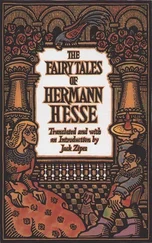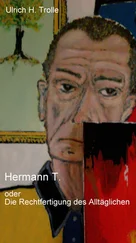Judith Hermann - Alice
Здесь есть возможность читать онлайн «Judith Hermann - Alice» весь текст электронной книги совершенно бесплатно (целиком полную версию без сокращений). В некоторых случаях можно слушать аудио, скачать через торрент в формате fb2 и присутствует краткое содержание. Год выпуска: 2011, Издательство: Clerkenwell, Жанр: Современная проза, на английском языке. Описание произведения, (предисловие) а так же отзывы посетителей доступны на портале библиотеки ЛибКат.
- Название:Alice
- Автор:
- Издательство:Clerkenwell
- Жанр:
- Год:2011
- ISBN:нет данных
- Рейтинг книги:3 / 5. Голосов: 1
-
Избранное:Добавить в избранное
- Отзывы:
-
Ваша оценка:
- 60
- 1
- 2
- 3
- 4
- 5
Alice: краткое содержание, описание и аннотация
Предлагаем к чтению аннотацию, описание, краткое содержание или предисловие (зависит от того, что написал сам автор книги «Alice»). Если вы не нашли необходимую информацию о книге — напишите в комментариях, мы постараемся отыскать её.
Alice — читать онлайн бесплатно полную книгу (весь текст) целиком
Ниже представлен текст книги, разбитый по страницам. Система сохранения места последней прочитанной страницы, позволяет с удобством читать онлайн бесплатно книгу «Alice», без необходимости каждый раз заново искать на чём Вы остановились. Поставьте закладку, и сможете в любой момент перейти на страницу, на которой закончили чтение.
Интервал:
Закладка:
In spite of that, she had left for Zweibrücken. Misha did not die. Not while she was sitting on the train, reading a newspaper, falling asleep and waking up again, drinking coffee, eating a tart apple, looking through the window, crying, going to the toilet, and twice changing her seat. Seeing signs in everything and misinterpreting them. Misha didn’t die, not when she arrived in the town and Maja and the child picked her up at the station, not when they embraced and Maja said, We can cry later. Misha didn’t die the first night that Alice took care of the child while Maja went to the hospital, nor the second, and before the third night they had decided to move.
They were standing on the pavement, waiting for the taxi. The pushchair was collapsed. The bags of food from the refrigerator sat next to Alice’s overnight bag and Maja’s suitcase. Earthly goods. Every word suddenly had a second meaning. The pavement was narrow, cars rushed by, raising fountains of rainwater behind them. Nobody was out walking. The taxi didn’t come. Maja, holding the child in her arms, rocked her a while, then she passed her to Alice. Alice took the child, afraid she might put up a fight, but the child didn’t resist her, just looked so very serious. Alice held the child in one arm, supporting part of the weight on her hip, the way you hold children. The closeness of the little face, framed by a fluffy pink pompom hat, embarrassed her. The child smelled of baby, of milk, and mashed carrots; her blue eyes were huge and shiny. Alice had to look away; she gazed up and down the street. What a place. The street crossed over the motorway, ran through a park where dishevelled ducks swam in a stagnant pond, then on to the desolate centre of town and up to the hospital — a walk of twenty minutes with the pushchair and the child who, just learning to walk, wanted to walk all the time, but never straight ahead, rather this way and that way. She was learning to walk in spite of everything and precisely because of it all. Maja had been taking this route for a week now. There. And back. The child had thrown soggy biscuits to the ducks. The ducks barely noticed. It was cold, the middle of October, not golden. The child on Alice’s arm turned her head and saw what Alice saw. Rain and grey houses. Nothing that they might have pointed out to each other.
Maybe I ought to call the taxi again, Alice said, but Maja didn’t react, which probably meant that there was no need to call again. Alice found that Maja often spoke by saying nothing, expressing herself clearly with silence. In different circumstances Alice might have objected to this silence. But Maja was Misha’s wife. They had a child together, and once Misha was dead, Maja would be his widow. The affair between Misha and Alice had happened too long ago for her to claim any rights whatsoever. Just an anecdote but, Alice thought, if it weren’t for that anecdote, I wouldn’t be in Zweibrücken now. And yet, my being here doesn’t change the fact that Misha is dying.
The taxi pulled up at the kerb. The driver made a face; he didn’t feel like climbing out, getting his feet wet, packing all their stuff into the boot — the pushchair, the suitcase, the overnight bag, the bags of food. He got out. Maja took the child from Alice and smiled at the driver. Alice got into the front seat. In the back the driver fiddled nervously with the child’s seat. Maja was holding the child in her lap, still smiling. Then they drove off. Nice windscreen wipers, music on the radio, the regional station, idle chatter, a gong, and then pop songs. Looking out of the window. Driving down the street, crossing the motorway — the signposts, upcoming exits were all clearly visible, drawing one to distant places, the possibility of getting away from Zweibrücken again. Let’s beat it, disappear, clear out, skedaddle — it was a language that was suddenly no longer appropriate here. They drove past the park; the hospital whisked by, seven storeys with twenty windows each — the third from the left on the seventh floor was the window of the room where Misha lay in bed, breathing in and breathing out. The door to his room always ajar, and his breathing so loud you could already hear it as you walked out of the lift.
You’ll be shocked when you see him, Maja had said the first time Alice went to the hospital. And she had been.
Alice didn’t look up at the hospital window. They drove uphill briefly, leaving the centre of town, then through a wooded area and into a housing development. The cab driver had a terrible cough. Number twelve, Maja said from the back seat. Alice paid, didn’t ask for a receipt. The driver took their things out of the boot, mumbling to himself as he did. Then he drove off. Alice, Maja and the child stood in the street looking at the house — a small, new, white house with a conservatory in which huge azaleas were pressing against the fogged-up panes. A rustic witch sitting on a straw broom hung outside the stained-glass panel set into the front door, swinging and rustling in the wind. Alice thought she knew what the doorbell would sound like. The air was brisk. Suddenly they could smell the rain, the wet soil, the damp leaves.
Alice had been at the hospital that morning. After breakfast. One of the doctors had said, There are people who find it easier to die alone; let him be by himself for a little while, don’t worry. Misha had been alone from one o’clock at night till ten o’clock in the morning, nine hours during which he had been breathing and did not die.
That morning Alice sat at Misha’s bedside until noon. First on one side of the bed, then on the other. The room was utilitarian, fitted cupboards, a sink, the door to the toilet, a bare area of painted linoleum where a second bed had stood in which another patient had been lying. Some days ago the nurses had pushed him elsewhere, without giving any reasons. To some other place.
Sitting on the right side of the bed, Alice had her back to the window that looked out on the city and a distant range of hills. Sitting on the left-hand side of the bed, she’d be next to the IV drip stand for the morphine, but leaning back against the wall unit, she could look out of the window and see the hills when she could no longer bear to look at Misha. To look at his face. Misha slept with his eyes open. The entire time. Like a plant, he had turned to the light, towards the grey but bright day — his body, his head, his arms and hands turned towards the window. In spite of the open eyes he looked as though he were sleeping, but perhaps it was something quite different, this state he was in, anaesthetised by morphine, flooded by images, or by nothing at all any more. He had sighed, often and deeply. Sometimes Alice would take his hand, which was warm and so very familiar. The door to the room was slightly ajar, the squeaking of the nurses’ shoes was comforting — the ringing of the telephone at the nurses’ station, the rumbling of the lift, the whispering and laughter, a constant bustle, the food trolley rolling past the room. Now and then one of the nuns would come in. An old, wrinkled nun came by often; Alice thought she came on her account rather than because of Misha.
Everything all right?
Yes, so far.
The nun had stopped at the foot of the bed and, holding on to the metal bar, had gazed at Misha with her head cocked. Interested. His mouth was open, the gums black, his unseeing eyes turned towards the window. The nun had looked at Alice and asked what sort of man he had been.
How do you mean? Alice had asked, sitting up; she had been slumped down in the chair leaning against the wall unit.
Do you mean what was his profession?
The nun had lifted her hands casually and dropped them again, giving the bed a jolt. She said, Well, how did he spend his life? What did he do?
They had both looked at Misha, and Alice thought the nun would never know what Misha had been like, how he had looked, how he talked, cursed, and smiled — how he had lived his life. She saw only the dying man. Was she missing something?
Читать дальшеИнтервал:
Закладка:
Похожие книги на «Alice»
Представляем Вашему вниманию похожие книги на «Alice» списком для выбора. Мы отобрали схожую по названию и смыслу литературу в надежде предоставить читателям больше вариантов отыскать новые, интересные, ещё непрочитанные произведения.
Обсуждение, отзывы о книге «Alice» и просто собственные мнения читателей. Оставьте ваши комментарии, напишите, что Вы думаете о произведении, его смысле или главных героях. Укажите что конкретно понравилось, а что нет, и почему Вы так считаете.












